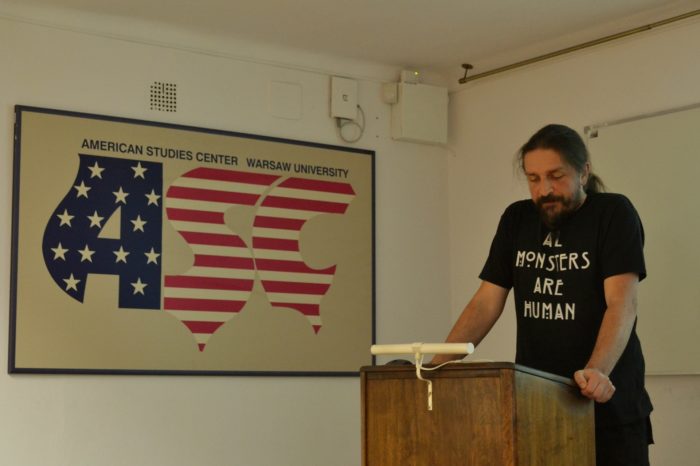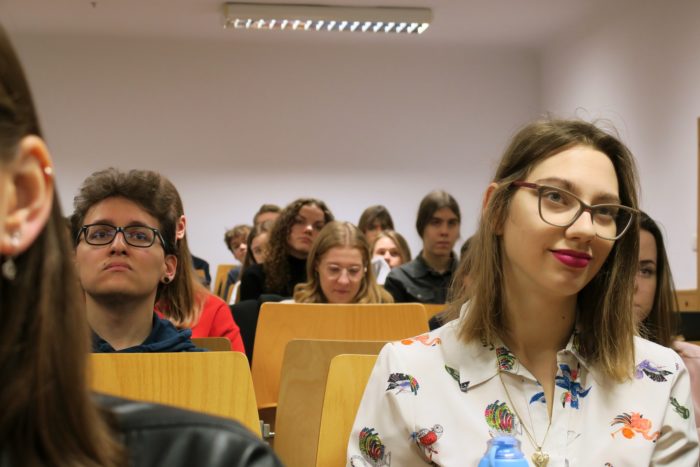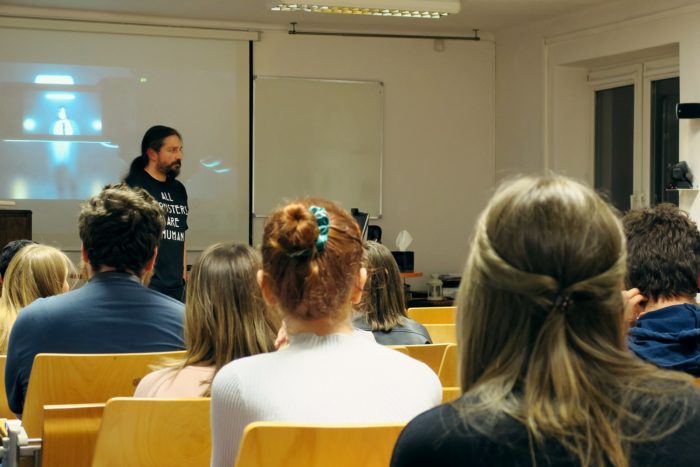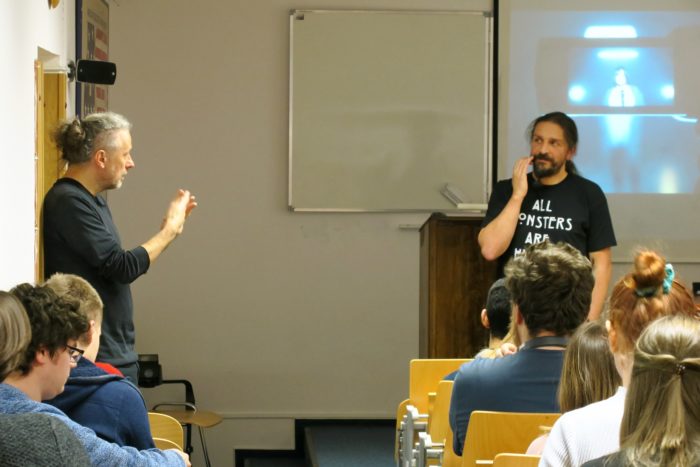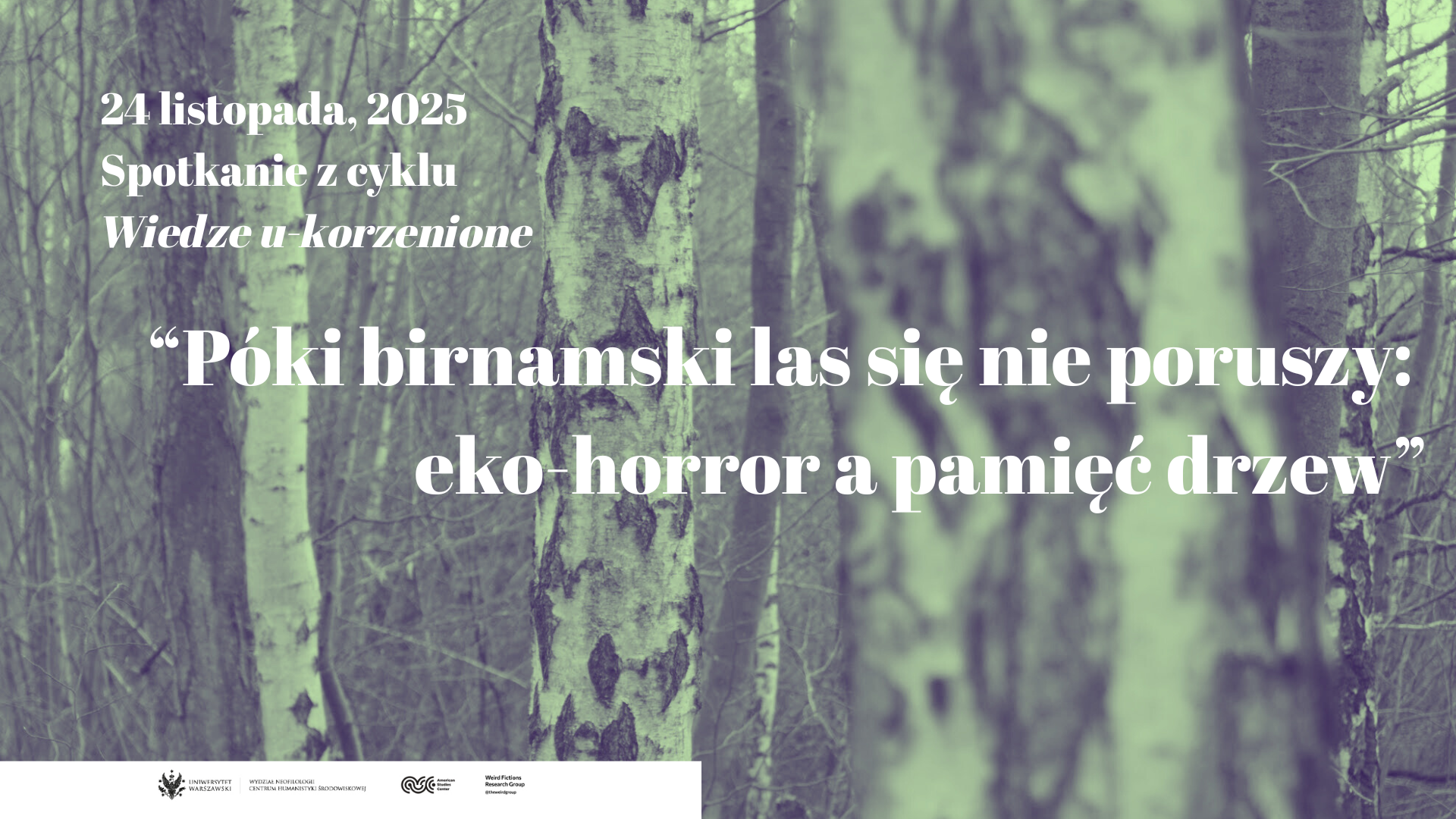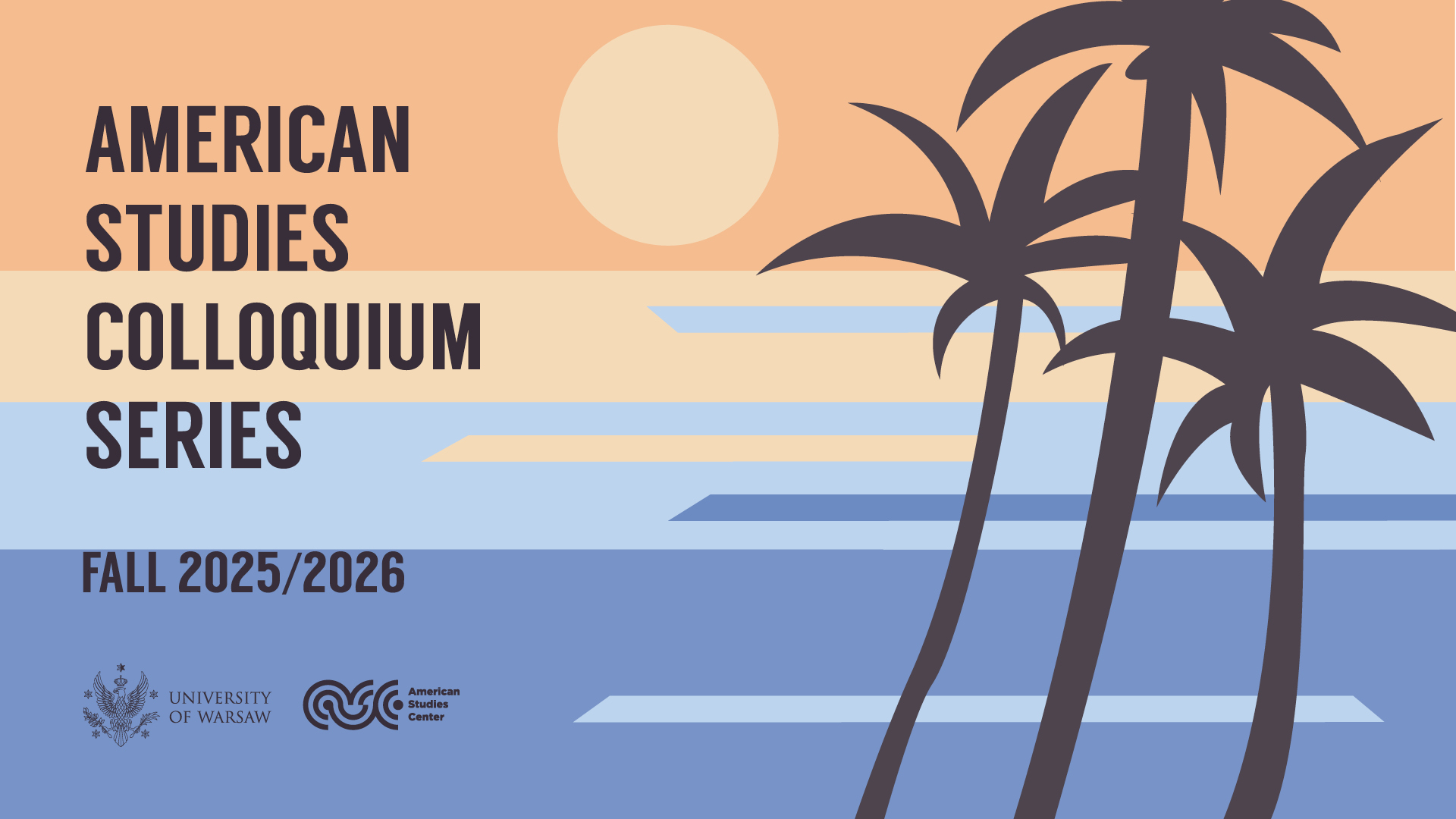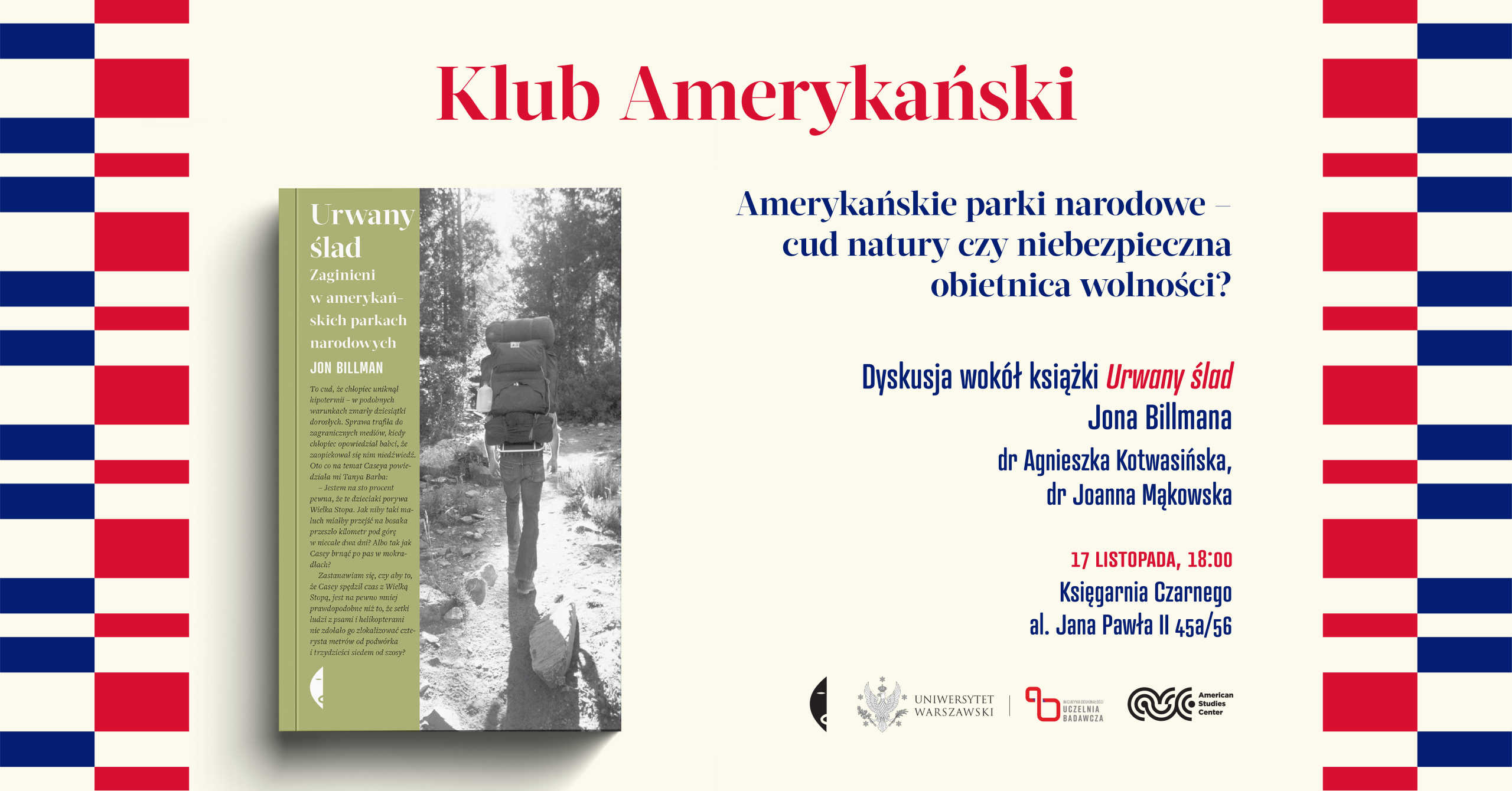We are pleased to announce a lecture by
Michael Fuchs
(University of Graz)
“No law, no person, no governing body dictating your behavior.”
AHS: Cult, The Purge, and the End of Subtlety in the Age of Trump
The lecture is going to be a part of the
American Studies Colloquium Series.
Thursday, December 12, 2019
at 4:00 p.m
Where?
American Studies Center, room 317,
al. Niepodległości 22, Warsaw.
What?
In his book New Television (2017), Martin Shuster suggests that contemporary American television depicts a “world […] emptied of normative authority”. According to Shuster, this representational strategy speaks to the current political climate, “where public trust in US institutions is at an all-time low and where, whatever promise the project of the United States of America might be taken to suggest, such as a promise is shown forcefully […] to be in danger of disappearing”. The presentation will examine the seventh season of the anthology show American Horror Story (FX, 2011–) and The Purge (USA Network, 2018–) within these contexts.
To be sure, AHS: Cult may be easily downplayed “as a dull blade slashing wildly at Trump’s triumph, as Victoria McCollum puts it in her introduction to Make America Hate Again: Trump-Era Horror and the Politics of Fear (2019). The Purge series has, similarly, been charged of “dumbing things down for TV” (as Ben Travers’ review for IndieWire has it). Especially in the popular press, both shows have been accused of being too “explicit […] commentar[ies] on the Trump era,” to quote from a Justin Chang article in the LA Times. However, as Michael Fuchs will show during the lecture, both shows reflect (and reflect on) a cultural yearning for simplicity and order. They cannot be subtle, as the current political discourse is not subtle.
Scholars and critics have celebrated Jordan Peele’s Get Out (2017) for confronting America’s deep-seated racism head-on rather than drifting into symbolism and allegory, thereby ushering in a new golden age of horror. AHS: Cult and The Purge take similar swings at the current American political climate. The majority of Americans (and those so desperate that a one-time payment of US-$5,000 makes them participate in Purge Night even if they might oppose the idea of Purge Night), both shows suggest, is looking for authority figures who help re-establish clarity in a complex and confusing world—clear binaries of black and white, rich and poor, those who purge and those who are purged. Yet in the end, both AHS: Cult and The Purge make clear, embracing these authority figures only leads to further chaos.
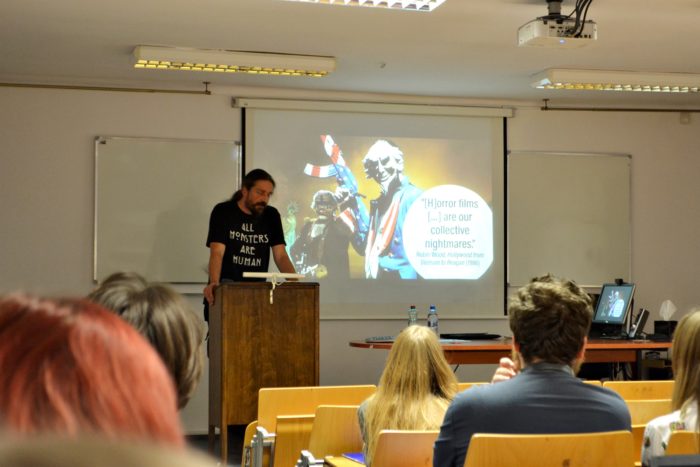
Who?
Michael Fuchs is a fixed-term assistant professor in American studies at the University of Graz in Austria. He has co-edited six essay collections, most recently Intermedia Games—Games Inter Media: Video Games and Intermediality (Bloomsbury, 2019), with a volume on American cities in science fiction, horror, and fantasy forthcoming with UP Mississippi next year. He has (co-)authored more than fifty published and forthcoming journal articles and book chapters on American television, horror cinema, video games, science fiction, comics, and contemporary American literature, which have appeared in venues such as The Popular Culture Journal, The Journal of Popular Television, and the European Journal of American Culture. Michael is currently working on monographs on urban spaces in American horror cinema (under contract with the Horror Studies series published by U of Wales P), the aesthetics of contemporary television horror (under contract with Intellect Books), and on animal monsters in the American imagination. For additional information, see www.michael-fuchs.info.
